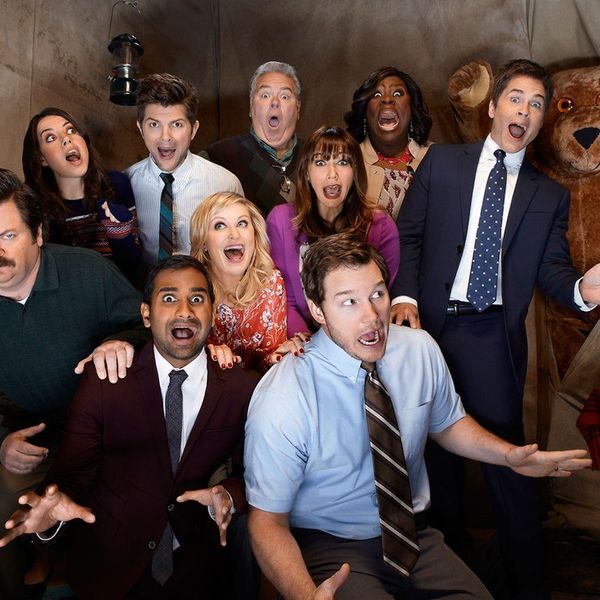Something interesting to think about is the fact that I was being very sad very publicly just now and no one did anything about it.
I'm not usually sad. In fact, I'm almost always happy. But I'm sad now.
I went to my first Columbia rally just now, protesting the ban on Muslim immigrants, which is something I believe in. I wasn't quite ready to start chanting yet but I could get behind it. I stood there watching all those people with signs, proud of them and proud of me. My friend Aliza was standing there with her "Jews Against Trump! #weveseenthisbefore" sign. I beamed at her. Then all of the sudden the crowd start chanting: "From Palestine to Mexico! All the walls have got to go!" I looked at Aliza, to see her reaction. Her smile had vanished and her sign hung limp in her arms. I heard a Jewish upperclassman near me say, "Well, I'm out of here." I watched a slight surge of the crowd as about five people left. I don't think anyone else really noticed.
I left too, of course. I'm an Israeli citizen. I carry the passport, proudly. It's my right to leave. I was muttering to myself, "It's the other things that matter, that's all." What I was talking about was the text I had finally worked up the nerve to send to my only Muslim friend. It said, "I am here for you. If you ever need anything, let me know." That's what matters. That's what does something, not the shouting.
And I was almost feeling alright again, when all of the sudden I looked to my right and there through a thin gap in the buildings was the sun setting pink over New York City. It's weird because this is almost never true but I swear that sunset looked exactly like the sunset in Israel, the gold-pink hue of the Middle East. More specifically, it looked like the sun that was setting out the window of my classroom at 4:32 in the afternoon on Thursday November 19th, 2015 when we heard the wailing of the ambulances that were coming to pick up the still-warm corpses of Ezra Schwartz and Yaakov Don, both of whose memorials I attended later that week.
I stopped right there in the middle of a path in between College Walk and John Jay's (I was on my way to get some ice cream), and I remembered how it was one day when the wall in Israel hadn't been strong enough. I stood there, transfixed, staring at the sunset and remembering. I stood there until the sky faded away to dusky blue. There must have been tears in my eyes.
Do you know what I was thinking? I was thinking, "They don't know. How can they know?" And I was thinking, "They don't know anything. They're protesting and they don't know what they're saying." And I was thinking, "I don't know what I'm saying either. What sounds right isn't always right. How can I know?" And I was thinking, "I'll never go to a protest again."
But anyway, that's not the important part. The important part is that I was standing in the middle of the path between College Walk and John Jay's, tears pooling in my eyes. Right smack in the middle of the path at dinner time, staring into the sunset. I wasn't moving. So people had to go around me.
And they did. They swerved to avoid me, alone, or in groups of friends, talking over me and around me, avoiding my eyes. At first I ignored them, because I was too busy reliving thoughts about bullets and death on a mild Israeli day over a year ago. But then I really started thinking about them. I started looking at them. They ignored me. They brushed past me. I was standing there for at least twenty minutes. I could have been contemplating suicide, for all they knew.
One guy looked concerned. He said, "Hello" as he walked past me. I said, "Hello" back. He kept on walking. Isn't that interesting? Is "hello" enough for him to know that I am okay?
I started thinking about what I would do if I saw someone standing looking sad and wrong on a path on my way to dinner. I know exactly what I would do. I would do what I did when I found that girl crying on a bench outside of Milbank the first month of school, or anytime I catch someone looking like that.
And then I realized that most people don't know how to react to sad people like I do. So - and this was the point of the article, which I probably shouldn't have written while I was still upset because now I've gotten distracted - I'm going to make you a nice little instruction manual on WHAT DO WHEN YOU SEE A SAD HUMAN.
There's really one rule. And here it is:
1. TALK TO THEM. This is a NECESSITY, but you have to do it very carefully. In fact, I'm going to break it down for you.
A) IF YOU ARE 100% SURE THAT THEY ARE SAD: This is if there are literally tears falling from their eyes (or snot dripping out their noses, let's not pretend that crying is beautiful):
IF THEY ARE SITTING DOWN, SIT DOWN NEXT TO THEM. If they're standing, walk up to them. IF YOU HAVE TISSUES, OFFER THEM TISSUES. IF YOU HAVE CHOCOLATE, OFFER THEM CHOCOLALTE.
Say, "Hi, what's your name?" DO NOT ASK THEM IF THEY ARE OKAY. BECAUSE THEY MIGHT SAY YES AND THEN WHAT WILL YOU DO. After they tell you their name, introduce yourself. Say, "Nice to meet you."
At this point, you should SILENTLY COUNT TO 10.
If by 10 they haven't begun to tell you what's wrong, ASK THEM, "WHAT'S WRONG?" Then count to 10 again.
If they still don't answer, ask: "Would you like to be left alone?" (also do this if they don't tell you their name). If they say yes, leave. If they say no, stay there with them. Stay silent. Rub their arm. DO NOT LEAVE UNTIL THEY TELL YOU TO LEAVE. If you absolutely have to leave (you have class or something), tell them, "I'm sorry, but I have to go now. I hope you feel better. Here's my phone number if you ever need to talk." Write down your phone number for them and put it in their hand.
At some point here, they will probably begin telling you what's wrong. If they do this, LISTEN TO THEM!!!! DO NOT GIVE ADVICE. DO NOT PICK SIDES. Nod and ask clarification questions. Say "mmhmm" in your most soothing voice. They may ask, "Do you understand?" Make sure that you understand. And say, "Yes, I understand." They may apologize for bothering you. Say, "It's okay" in your most soothing voice. They may repeat themselves. Just keep listening.
At some point, they will be done talking. This is a tricky point to pin down. I'd say it's usually when they've repeated the problem about five times, and they've stopped sobbing and their voices have calmed down a bit. At this point, IF YOU HAVE ADVICE, OFFER IT. IF YOU DON'T, SAY, "THAT SUCKS. I'M SORRY." AGAIN, DO NOT PICK SIDES.
At this point, they'll probably decide to leave. Advise them to treat themselves to some food or beverage that they really like, and to calm down before doing anything.
You both go your merry ways, the end.
You may be thinking to yourself, this sounds difficult. I'm not sure if I want to do this. WELL DO YOU KNOW WHAT ELSE IS DIFFICULT? SOBBING ALONE ON A BENCH WITH NO ONE TO TALK TO. So.
B) IF YOU ARE NOT SURE IF THEY ARE SAD OR NOT: This is if they're doing what I was doing in my little episode, staring off into the sunset for too long or generally acting unusual.
GO UP TO THEM (IF THEY ARE SITTING, YOU DO NOT HAVE TO SIT NEXT TO THEM). ASK, "IS THERE ANYTHING WRONG?" At this point, people will usually say no. It's up to you to judge their tone of voice and decide if they actually sound sad or not. If they sound off, SAY, "ARE YOU SURE?" Obviously they will still say, "Yeah, I'm sure. Totally fine." But by this point they will have to force themselves to sound cheerful in order to convince you to go away. This is already a step in the right direction. They have to snap out of it, realize that people are looking at them. This is good for them. At this point, about half the time, they will get up, shake their head, and walk away - continuing with their daily life. Your job is done. IF THEY ANSWER THAT YES, SOMETHING IS WRONG, SEE A).
C) IF THE UPSET PERSON IS YOUR FRIEND:
IGNORE ALL ADVICE GIVEN ABOVE AND USE YOUR JUDGEMENT.
This has got to be the longest article I have ever written for the Odyssey. But everything in it is important. It's important for me to express my feelings about anti-Israel sentiment on campus. And it's important for all of us to know how to stop this suicidal streak at Columbia. Anyhoo, tallyho.





















